Prunus 'Beni-yutaka' Tree
Prunus 'Beni-yutaka' Tree
Japanese Flowering Cherry Trees
Single stem tree, 150-200cm, 12L pot
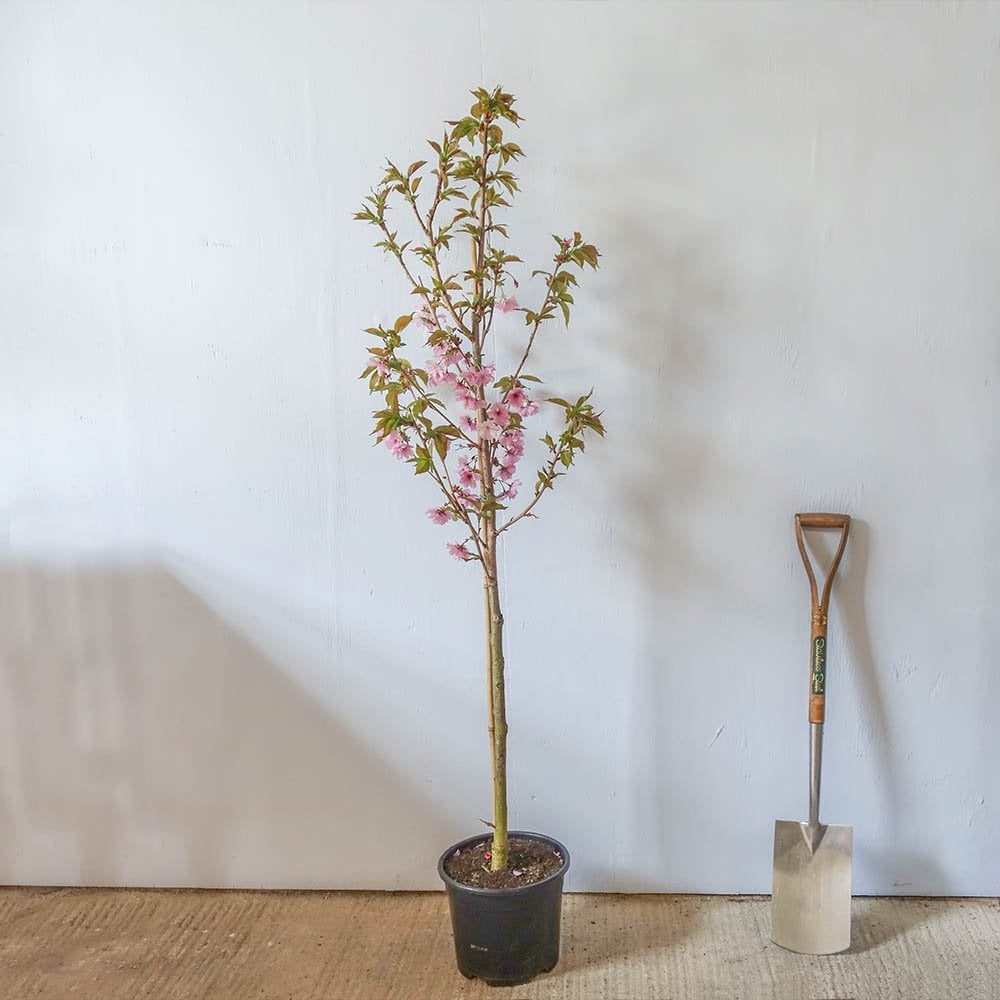
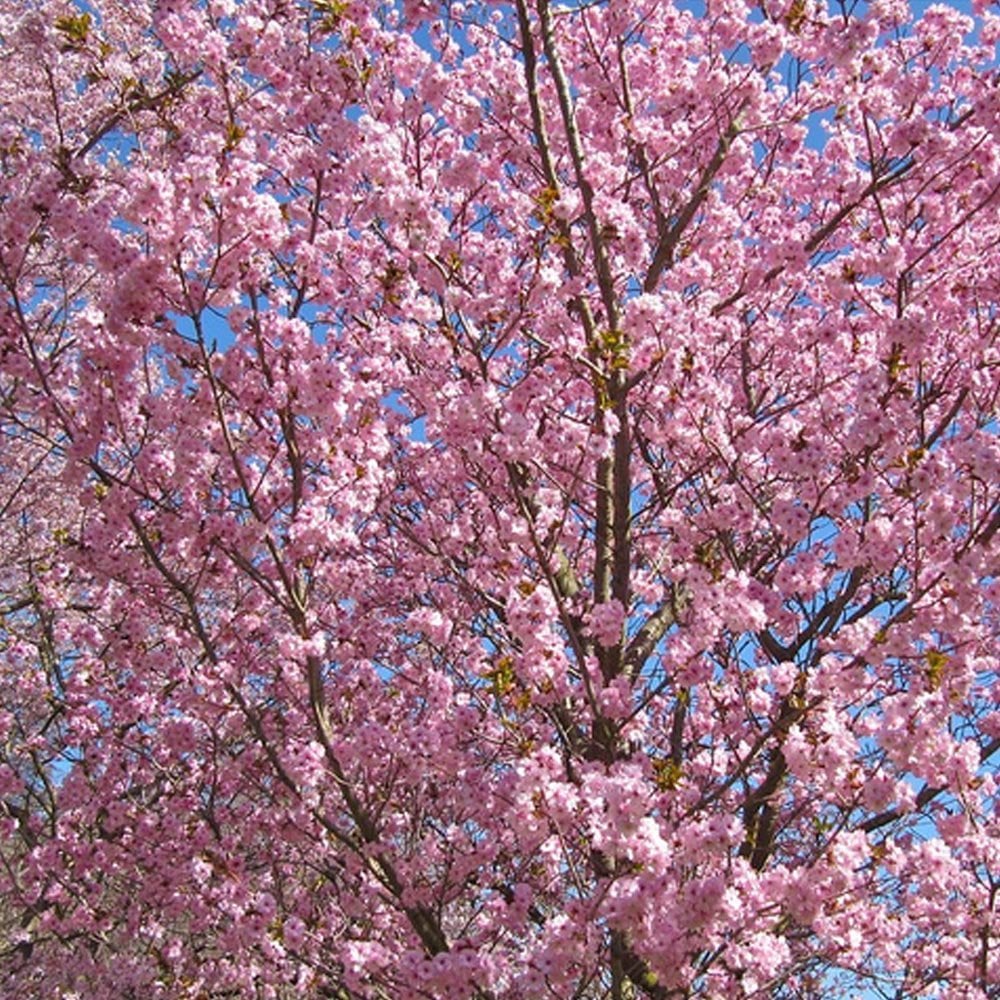
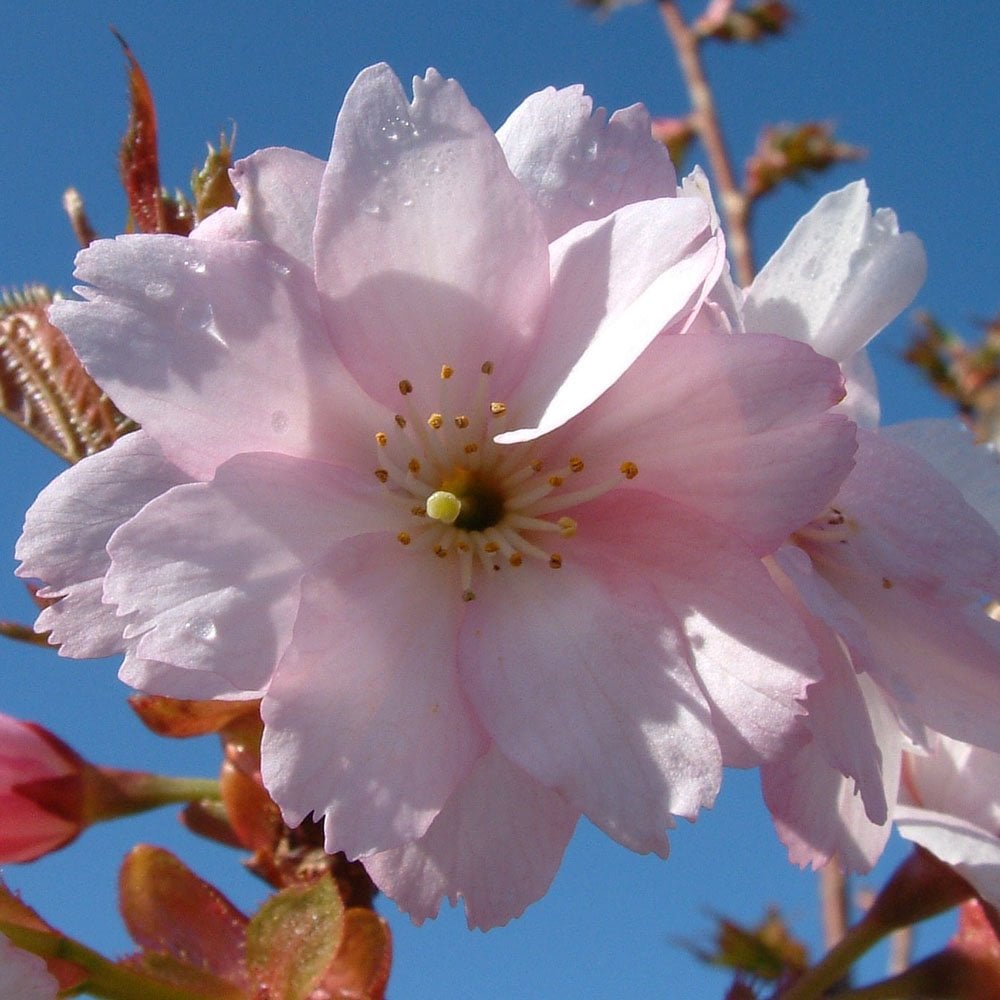
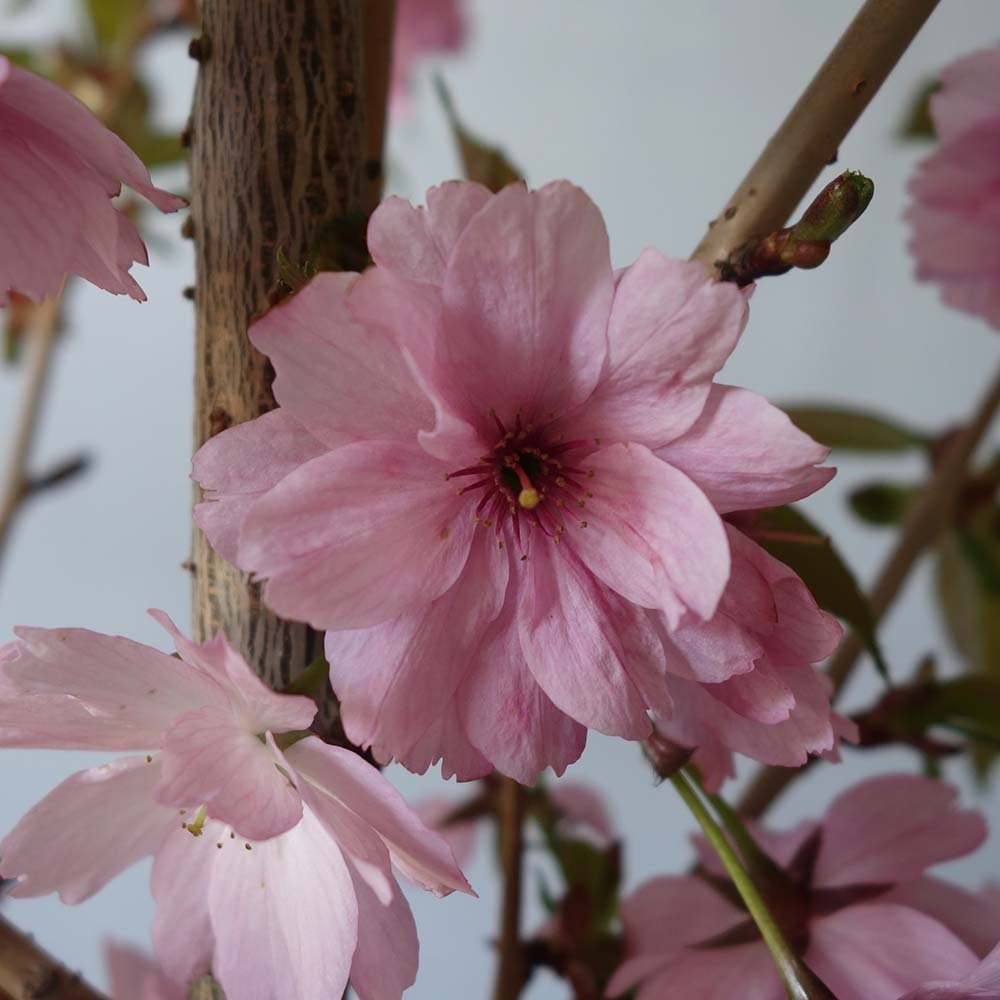
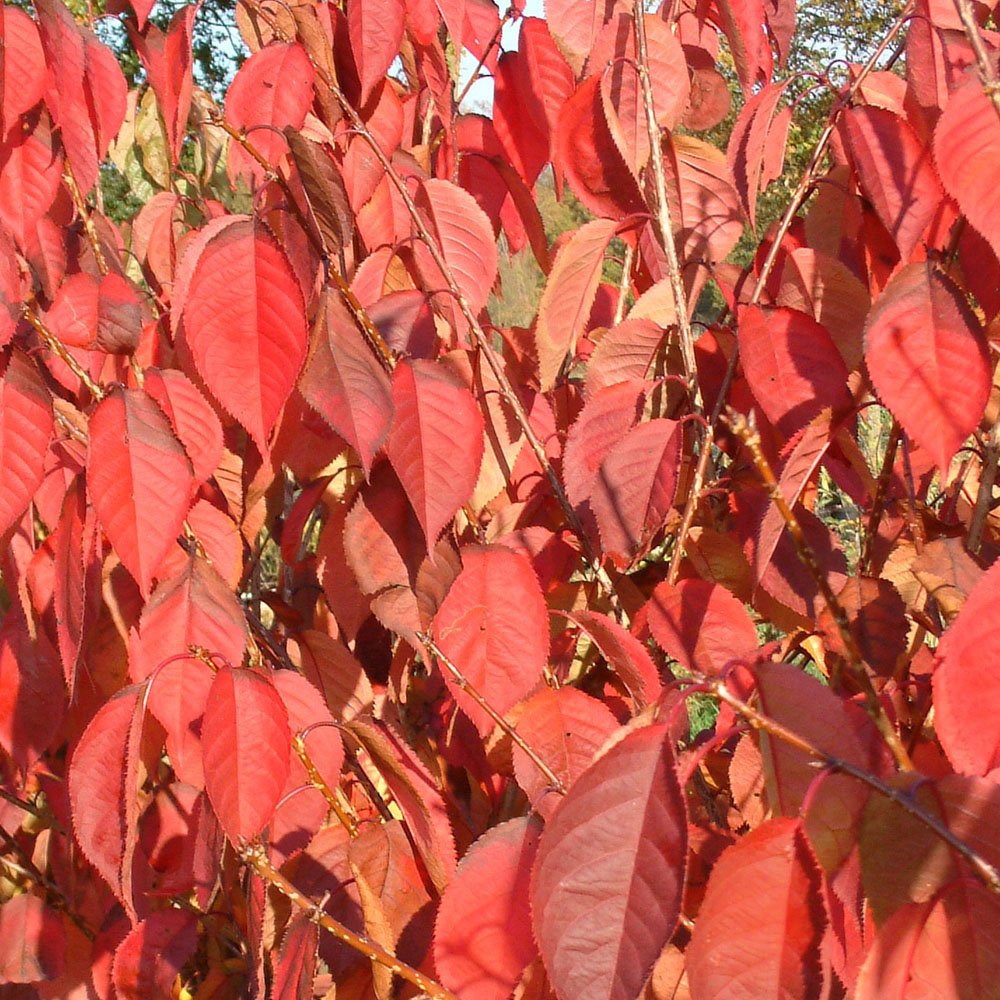
Key features




Description
This is a lovely variety of Japanese Flowering Cherry with large, pink double flowers that turn a darker colour in the centre during the flowering period. The perfect small garden tree, Prunus 'Beni-yutaka' has an upright form that fans out slightly in maturity to a vase shape. In autumn, the green foliage turns a vibrant crimson colour with hints of orange and yellow before falling.
This flowering cherry tree will grow to an estimated height and spread of 5 x 3 metres in 20 years making it ideal for smaller spaces. Prunus Beni-Yutaka prefers alkaline soil but does well in any soil apart from really wet conditions.
AKA Cherry blossom tree, Ornamental cherry, Japanese flowering cherry, Cherry 'Beni-yutaka', 'Beni yutaki'
| Small shrubs (1-3) | Young trees & 4+ small shrubs | Select semi-mature trees & shrubs (1-4) | All other mature trees (any quantity) | |
|---|---|---|---|---|
| Mainland UK ex. Scottish Highlands | £12 | £12 | £35 | from £60 |
| Scottish Highlands & the Islands | From £30 | |||
| Outside Mainland UK | Currently we are unable to deliver outside of Mainland UK | |||
Product Details
Key features




Description
This is a lovely variety of Japanese Flowering Cherry with large, pink double flowers that turn a darker colour in the centre during the flowering period. The perfect small garden tree, Prunus 'Beni-yutaka' has an...
This is a lovely variety of Japanese Flowering Cherry with large, pink double flowers that turn a darker colour in the centre during the flowering period. The perfect small garden tree, Prunus 'Beni-yutaka' has an upright form that fans out slightly in maturity to a vase shape. In autumn, the green foliage turns a vibrant crimson colour with hints of orange and yellow before falling.
This flowering cherry tree will grow to an estimated height and spread of 5 x 3 metres in 20 years making it ideal for smaller spaces. Prunus Beni-Yutaka prefers alkaline soil but does well in any soil apart from really wet conditions.
AKA Cherry blossom tree, Ornamental cherry, Japanese flowering cherry, Cherry 'Beni-yutaka', 'Beni yutaki'
Planting & Care
Delivery Information
| Small shrubs (1-3) | Young trees & 4+ small shrubs | Select semi-mature trees & shrubs (1-4) | All other mature trees (any quantity) | |
|---|---|---|---|---|
| Mainland UK ex. Scottish Highlands | £12 | £12 | £35 | from £60 |
| Scottish Highlands & the Islands | From £30 | |||
| Outside Mainland UK | Currently we are unable to deliver outside of Mainland UK | |||
MORE TO GROW YOUR GARDEN




















